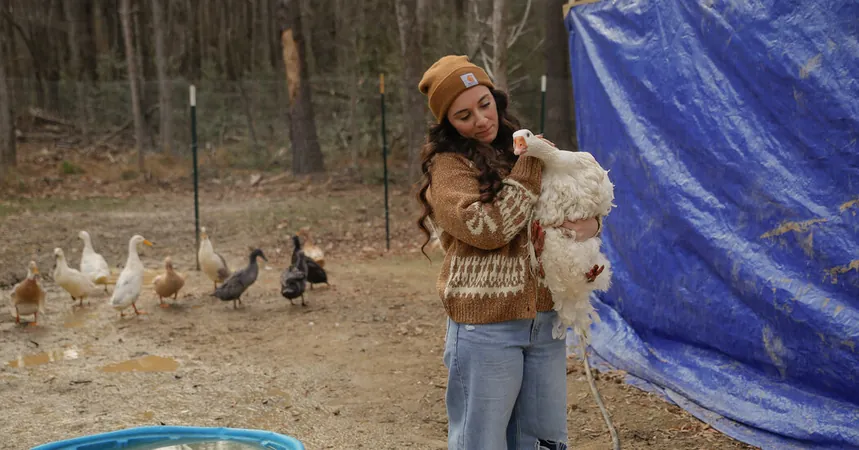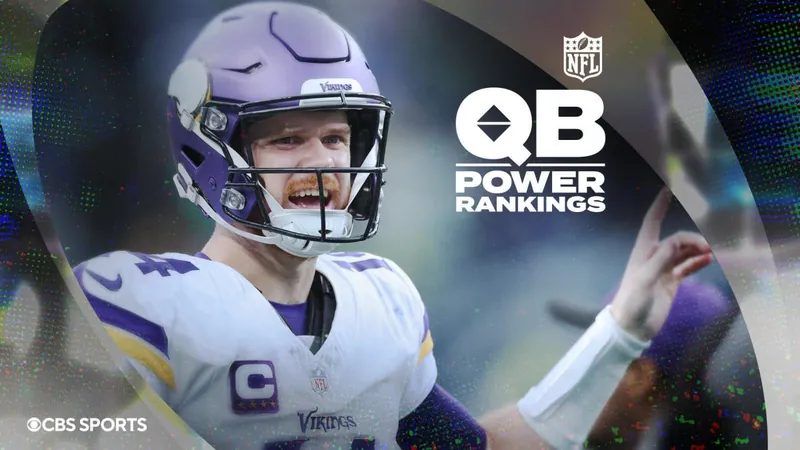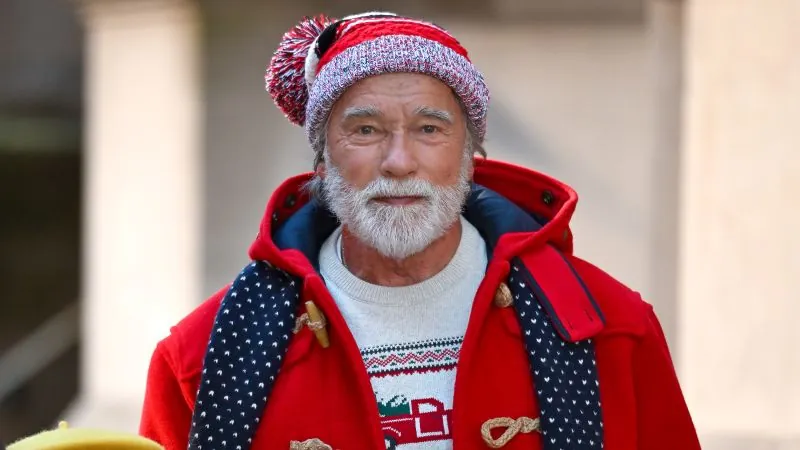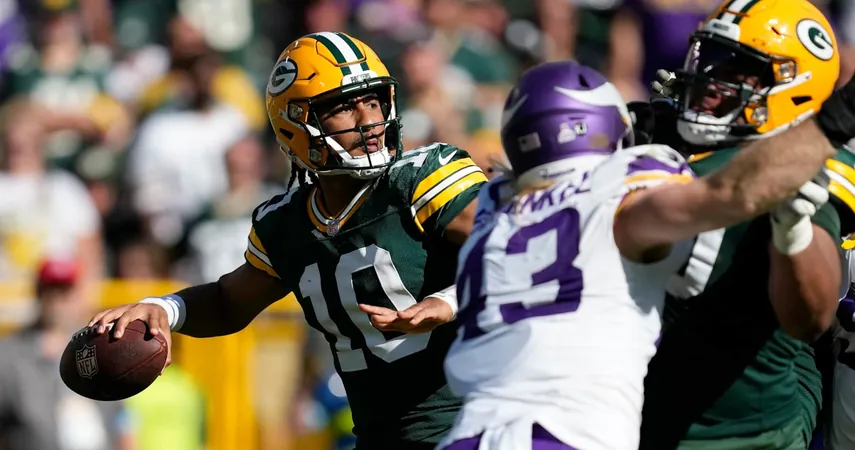
The Unexpected Transformation of the 'Crunchy' Movement: From Counterculture to Political Power
2024-12-18
Author: Kai
The Crunchy Movement's Beginnings in the 1980s
In the 1980s, describing oneself as “crunchy” was hardly a badge of honor. The term was often associated with a peculiar blend of anti-fashion and political sentiment but rarely embraced openly. It signified a lifestyle that leaned toward vegetarianism and environmentalism, mirroring the rising visibility of leftist green parties in Europe. Environmental activists like Robert F. Kennedy Jr. were beginning to gain traction, drawing in those concerned with issues such as clean water and sustainable practices.
The Contemporary Transformation of Crunchy
Fast forward to today, and “crunchy” has undergone a remarkable evolution. No longer a niche label, it has morphed into a symbol that resonates across political divides. At the helm of this transformation is Kennedy himself, who has transitioned from an environmental crusader to a controversial figure in the current political landscape. Now, in his 70s, he finds himself as President Donald Trump’s chosen candidate for Secretary of Health and Human Services, bridging the gap between the far-left roots of the crunchy movement and a new right-leaning identity.
Social Media and the Rise of Crunchy Influencers
Today, “crunchy” showcases itself prominently on social media with the hashtag “#crunchymom,” where influencers advocate for holistic lifestyles. These predominantly young, white mothers passionately discuss the detrimental impacts of pharmaceuticals, pesticides, and additives on their families’ health. They reject the conventional parenting advice offered by experts, positioning themselves as defenders of a health-conscious lifestyle. Their admiration for Kennedy reflects their shared commitment to scrutinizing health standards in relation to their children’s wellbeing.
Returning to Roots: The Crunchy Lifestyle
Many aspects of the contemporary crunchy lifestyle echo the movement’s origins, as mothers strive to create healthy homes through organic cooking and outdoor play. They promote natural childbirth and seek to live in tune with a simpler, pre-industrial way of life. Influencers like Emily Morrow, who runs the account Really Very Crunchy, have garnered millions of followers with humorous content that critiques the overly serious nature of this lifestyle. Morrow’s skits serve to both highlight and satirize the granola-infused enthusiasm of the “crunchy” community.
The Impact of Political Events
The rise of Donald Trump heralded another shift within this movement. Events like the #MAHA (Make America Healthy Again) campaign united gritty parents under a banner of “health freedom.” After the 2016 election, many crunchy moms celebrated with virtual gatherings, expressing support for Kennedy’s alliance with Trump, seeing it as newfound political representation for their concerns regarding public health.
The Anti-Vaccine Influence on the Crunchy Community
Since the mid-2010s, the crunchy identity has been influenced heavily by anti-vaccine rhetoric that gained popularity among certain sectors of society. The political landscape changed even further following a California law that restricted medical exemptions for vaccinations. This spurred a backlash from parents, particularly in conservative areas, who framed their opposition as a matter of personal freedom, solidifying the crunchy community’s pivot towards right-leaning politics.
Debates Within the Crunchy Community
Members of this community often find themselves entangled in heated debates—an online remark about baby formula ingredients can spark civil wars over health and affordability. The increasing political engagement is a sign of the times, with many acknowledging a unilateral shift from a collective, community-focused ethos to a more self-referential narrative about navigating parenthood in a so-called toxic world.
Dissent Within the Movement
However, not everyone in the crunchy movement is content with this political trajectory. Some members, like homesteader Becca Tanner, express discomfort with the growing alignment of their core values with political conservatism. Once a supporter of Bernie Sanders, Tanner now finds herself skeptical about whether Kennedy’s appointment as health secretary can rectify systemic issues in food regulation while maintaining his previous advocacy for environmental protection.
Embracing a Nuanced Crunchy Identity
Similarly, Ashlyn Bristle, a small-scale farmer, faces a dichotomy within the movement. While she remains committed to sustainable farming, she feels increasingly alienated by the rigid anti-technology stance that pervades the modern crunchy culture. Bristle embraces vaccinations for her livestock to prevent disease and has even planned to introduce pasteurized milk to enhance food safety for her customers.
The Future of the Crunchy Movement
As the crunchy movement continues to evolve, it raises important questions about the future of health, politics, and the very definition of “crunchy.” Participants navigate a labyrinth of identity and values, balancing between personal convictions and collective beliefs, illustrating the complexities of modern parenting in an increasingly polarized climate.
Conclusion: What Does it Mean to Be Crunchy?
The journey of “crunchy” from a countercultural label to a politically charged identity exemplifies the broader struggle many face in today's society—how to align lifestyle choices with personal values while grappling with the implications of living in a deeply divided world. In a time when food, health, and politics intersect more than ever, the question remains: What does it truly mean to be “crunchy” in our rapidly changing landscape?




 Brasil (PT)
Brasil (PT)
 Canada (EN)
Canada (EN)
 Chile (ES)
Chile (ES)
 España (ES)
España (ES)
 France (FR)
France (FR)
 Hong Kong (EN)
Hong Kong (EN)
 Italia (IT)
Italia (IT)
 日本 (JA)
日本 (JA)
 Magyarország (HU)
Magyarország (HU)
 Norge (NO)
Norge (NO)
 Polska (PL)
Polska (PL)
 Schweiz (DE)
Schweiz (DE)
 Singapore (EN)
Singapore (EN)
 Sverige (SV)
Sverige (SV)
 Suomi (FI)
Suomi (FI)
 Türkiye (TR)
Türkiye (TR)